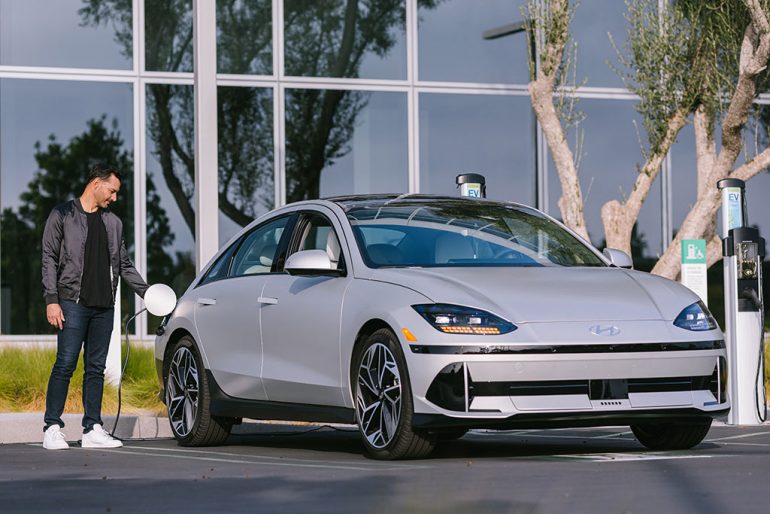
A recent survey conducted by Yahoo Finance and Ipsos has shed light on the cautious attitude of many Americans toward electric vehicles (EVs). Despite the growing momentum of the electric vehicle market in the United States, a significant portion of the population remains skeptical about making the transition from conventional gasoline-powered cars to EVs.
According to the survey, several key factors influence the reluctance to adopt electric vehicles. Cost, driving range, the availability of charging infrastructure, and concerns about the environmental impact are among the top considerations when deciding whether to purchase a fully electric vehicle or a plug-in hybrid.
The survey was conducted between September 29 and October 1, 2023, involving 1,025 American respondents. The results revealed that 57% of those surveyed were unlikely to purchase an electric vehicle (defined as either fully electric or plug-in hybrid) when they next buy a vehicle. In contrast, only 31% of respondents expressed a likelihood to purchase an electric vehicle, with 11% remaining uncertain.
Analyzing the demographic breakdown of those unwilling to purchase an electric vehicle, the survey found that 70% of respondents aged 65 and older were unlikely to make the switch, along with 60% of respondents earning an annual income below $50,000. Furthermore, 76% of self-identified Republicans expressed reluctance to buy an electric vehicle.
Stephanie Valdez-Streaty, the director of industry insights at Cox Automotive, highlighted several contributing factors for this hesitation. She pointed to concerns related to price, charging infrastructure, and the so-called “range anxiety,” which, she noted, is essentially “infrastructure anxiety.”
The survey also delved into specific concerns that respondents had regarding electric vehicles. Approximately 70% of those surveyed expressed concerns about the overall cost, 73% worried about driving range, and 77% noted a lack of charging stations, both on the road and at home.
Despite these reservations, certain states, such as California, have shown robust growth in electric vehicle purchases, surpassing 23%. This contrast with the national average of approximately 8% underscores the influence of state-level incentives and awareness campaigns. Valdez-Streaty emphasized the importance of education about such incentives, citing differences in states’ effectiveness in promoting electric vehicle adoption.
The survey findings also revealed a level of confusion among respondents regarding government programs. While 52% expressed support for government incentives to encourage EV purchases, only 30% were aware of programs like the federal EV tax credit.
Respondents also demonstrated distinct preferences based on age, income, and political affiliation. Those in the 35-49 age bracket and those with annual incomes exceeding $100,000 were more likely to consider purchasing an electric vehicle. Among political affiliations, 41% of Democrats expressed a likelihood to buy an electric vehicle, whereas only 17% of Republicans shared this sentiment.
When asked about their preferred automakers for electric vehicles, 30% of respondents expressed a preference for Toyota, followed by Tesla at 23%, Honda at 20%, GM at 15%, and Ford at 14%.
With the White House aiming for 50% EV sales by 2030, the survey indicates that policymakers face challenges in convincing more Americans to embrace electric vehicles. Valdez-Streaty stressed the importance of pricing and affordability in making EVs more attractive to U.S. consumers, highlighting the significance of federal tax credits for eligible vehicles priced below $40,000.
Awareness appears to be another crucial factor. The survey revealed that only 20% of buyers were aware of recent price reductions in electric vehicles, particularly by Tesla and Ford. Similarly, only 20% were knowledgeable about charging network expansion initiatives, addressing concerns about charging infrastructure and range anxiety.
Source: Yahoo Finance

Mike Floyd is a finance executive by trade and a car enthusiast at heart. As a CFO with a keen eye for detail and strategy, Mike brings his analytical mindset to the automotive world, uncovering fresh insights and unique perspectives that go beyond the surface. His passion for cars—especially his favorite, the Porsche 911, fuels his contributions to Automotive Addicts, where he blends a love for performance and design with his professional precision. Whether he’s breaking down industry trends or spotlighting emerging innovations, Mike helps keep the site both sharp and forward-thinking.
